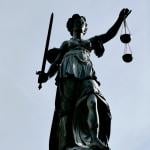Hamann can repeat this Derridean scandal, quite literally. As Gwen Dickson puts it, “Hamann’s conception of language as speech as a ‘translation’ reveals that at the basis of his thinking there is no language-world dichotomy; language, after all, is part of the world, and moreover the ‘world’ or ‘reality’ or ‘things’ are somehow linguistically conceived, so that speech is not a first depiction or description or representation but a translation of something that already is a ‘text.’” That “somehow” is... Read more
















